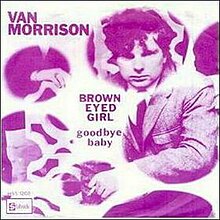Tuesday, April 30, 2013
Logophiles rejoice, rejoice!
You will love, love, love Bryan Garner's latest column in the ABA Journal, For the Word Lovers: A look at linguistic phenomena.
 Meet some new friends: anaptyxis, svarabhakti, apocope, aphaeresis, epizeuxis and many more!
Meet some new friends: anaptyxis, svarabhakti, apocope, aphaeresis, epizeuxis and many more!
New 8th Circuit website... "Itsa betta than the 9th's?"
Yesterday the 8th Circuit launched a new website. Take a look and see how it compares to the 9th Circuit's...

"The Eighth Circuit is pleased to debut it's a new web page, built in cooperation with the Administrative Office of the United States Courts as part of a judiciary-wide effort to improve on-line access for attorneys, litigants, educators and the general public. All of the information you are used to seeing on our website is still available, including access to electronic filing, oral argument recordings, forms, rules, court calendars and opinion summaries. Additionally, we have added information for pro se filers and educators. Please feel free to browse the site, and let us have your comments and suggestions."
Hey, whatsa matter witha the new webpage? How Appealing notes that the site has been taken down for more proofreading!
Hey, whatsa matter witha the new webpage? How Appealing notes that the site has been taken down for more proofreading!
What's your headgear in court?
Today's Wall Street Journal has a story about how solicitors in Hong Kong really want to be able to wear wigs like barristers: Wigged Out: Hong Kong's Lawyers Bristle Over Horsehair Headpieces --- Holdover From British Rule Causes Legal Split; 'It's Magical'

The article quotes a barrister who says, "When I wear my wig, I know something big is going to happen .... It makes me feel like I have more responsibility. I think I exude more energy than without it. It's magical."

The article quotes a barrister who says, "When I wear my wig, I know something big is going to happen .... It makes me feel like I have more responsibility. I think I exude more energy than without it. It's magical."
No wig for you!
You're wrong and you're outta here!
In the Rodney Dangerfield department, today's DJ has an article titled Reassignments Rare on Reversal, Considered a Stinging Rebuke by Judges about what it means when the Ninth Circuit not only reverses a district judge, but also then orders the case reassigned to a new judge. As the DJ puts it: "Ouch."
The article notes that "many judges never experience the embarrassment of reassignment, some get reassigned with regularity," noting that Central District Judges Real and Wright together have had six reassignments in the past 18 months.
What are the factors for reassignment: whether the judge would have difficulty putting his or her expressed views or findings found to be erroneous out of his or her mind; whether assignment is advisable to preserve the appearance of justice; and whether reassignment would be a waste of judicial resources or out of proportion to any benefit.
The article notes that "many judges never experience the embarrassment of reassignment, some get reassigned with regularity," noting that Central District Judges Real and Wright together have had six reassignments in the past 18 months.
| You want a second opinion? Ok, you're wrong and you're off the case! |
Monday, April 29, 2013
Once again, You Are Invited...
You are cordially invited to comment on proposed changes to the Ninth Circuit's rules here, primarily regarding electronic filing. Email your comments to the court by May 20.

APJ Gilbert aka The Plaintiff
Today's Law360 has an article titled Justice Blasts Calif. Ban on Judges Taking Public Jobs -- which might lead you to think that it reports on something a justice said in court from the bench last Friday. But actually this is about 2/6's APJ Gilbert's speaking out in court -- as the plaintiff in his own lawsuit Gilbert v. Controller of the State of California (LASC BC487949). (The DJ also has an article about it today captioned Retired Judges Should be Able to Take other Government Jobs, Appellate Justice Testifies.) What's this all about? Well, Justice Gilbert says that he may want to retire before the end of his present term in 2019. But there is a state Constitutional provision (sometimes called the anti-moonlighting provision) that apparently prevents judges from taking a state job during their terms of office -- even if the judge has left that office!
Stay tuned....
Stay tuned....
Friday, April 26, 2013
LA Law Library Events Next Week
In celebration of National Law Day on May 1, 2013, LA Law Library and its partners are offering a full “Law Week” of legal seminars, classes and clinics. These events will be held both at the Main Library and other locations throughout the county. The Law Week Finale is a performance by the LA Lawyers Philharmonic Orchestra on the evening of Monday, May 6 at the Main Library.
All events are free and open to the public.
Public Records Access, 2:00 – 3:00 pm, LA Law Library Main Library
In a one-time offering to celebrate National Law Day, LA Law Library Executive Director Sandra J. Levin will outline the processes and procedures for obtaining public records from state and local agencies in California.
Lawyers in the Library, 5:30 – 7:30 pm, Panorama City Branch LibraryFor those in need of legal assistance, the San Fernando Valley Bar Association is offering free 20 minute consultations with volunteer attorneys at the Panorama City Branch Library. Topics covered range from bankruptcy and credit card debt to disability law and landlord/tenant issues.
Tuesday, April 30, 2013
Teens and the Law, 4:30-5:30 pm, Los Angeles Public Library, Central BranchPresented by the Center for Juvenile Law & Policy at Loyola Law School and LA Law Library, this program is designed to introduce teenagers to the law. High school-age students and their parents will be presented with a variety of scenarios frequently experienced by teenagers and what they can do to protect themselves.
Wednesday, May 1, 2013
“Ask A Lawyer” Program, 8:30 am – 4:30 pm, LA Law Library Torrance BranchIn support of the South Bay Bar Association’s “Ask A Lawyer” Program taking place at the Torrance Superior Court, LA Law Library Torrance Courthouse Branch (located on the first floor) will be open and providing its full range of research support and guidance to self-represented litigants and attorneys.
Thursday, May 2, 2013
Landmark Supreme Court Cases That Have Affected Law & Society, 2:00-3:00 pm, LA Law Library Main LibraryLA Law Library reference staff will give an overview of Supreme Court cases that have affected law and society. Learn about the library, legal research, and cases that have had a profound effect on all Americans.
Friday, May 3, 2013Representing Yourself in Federal Court, 12:00-1:00 pm, LA Law Library Main Library
Attorneys and paralegals from Public Counsel Law Center who regularly provide assistance to unrepresented litigants will provide guidance and information on preparing a case for federal court and appearing before a judge.
Saturday, May 4, 2013
Estate Planning, 10:00-11:00 am, LA Law Library Main LibraryEstate Planning Attorney Elizabeth Botsford will discuss the steps that need to be taken to prepare for the transfer of assets and what can be done today to maximize the value of an estate. She will address the basics of wills, living trusts, advance healthcare directives, and powers of attorney.
Lawyers in the Library, 2:30 – 5:00 pm, Panorama City Branch Library
For those in need of legal assistance, the San Fernando Valley Bar Association is offering free 20 minute consultations with volunteer attorneys at the Panorama City Branch Library. Topics covered range from bankruptcy and credit card debt to disability law and landlord/tenant issues.
Monday, May 6, 2013
LA Lawyers Philharmonic Orchestra Concert
Reception - 5:00 PM Concert - 6:00 - 7:00 PM
Having performed at Disney Concert Hall and Dorothy Chandler Pavilion, Gary Green, Esq. and the LA Lawyers Philharmonic bring their 50-musician orchestra to the LA Law Library for an enjoyable and entertaining evening of classical and contemporary melodies for music lovers of all ages. RSVP: www.lalawlibrary.org/CONCERT
Thursday, April 25, 2013
Judge McKeown to Lead Federal Judges Ass'n
Ninth Circuit Judge McKeown, based in San Diego, has started a two-year term as president of the Federal Judges Association. (Ninth Circuit Press Release here; Met News article here.)
As has been well documented (e.g., the DJ's 5/24/07 profile), Judge McKeown is a mountaineer.
No doubt she will put her climbing and endurance skills to good use working on surmounting the many challenges facing the federal judiciary.

As has been well documented (e.g., the DJ's 5/24/07 profile), Judge McKeown is a mountaineer.
No doubt she will put her climbing and endurance skills to good use working on surmounting the many challenges facing the federal judiciary.

Wednesday, April 24, 2013
California's falling apart... literally...
For administrative purposes our California State Bar geographically divides the Golden State into Districts that mirror the Court of Appeal Districts. Presumably to help lawyers figure out which district they're in, the bar provides a handy map, here. But, oddly, this map makes it look like the state is crumbling apart...
 |
| Channel Islands not to scale! |
Pro Tem Watch: Another two months in 2/6 for Judge Hoffstadt...
In the "asking for late-check-out" department, Judge Hoffstadt's visit to 2/6 has been extended to the end of June. With the vacancy from Justice Coffee's retirement, 2/6 may be very happy to keep that seat filled with a pro tem indefinitely...
Judge Brian M. Hoffstadt of the Los Angeles County Superior Court, will be sitting Pro-Tem in Division Six until June 30, 2013.
SLAPP Happy? A Trifecta!
Today you can enjoy a matched pair of SLAPP articles in the Daily Journal and Recorder.
{Update: Make that a trifecta! See below...}
Scott Graham's article in The Recorder, Rethinking Anti-SLAPP, covers the recent Makaeff v. Trump University and Mendoza v. Hamzeh opinions, which special emphasis on how the concurring opinions from Chief Judge Kozinski and Judge Paez urge that California's anti-SLAPP law should not apply in federal court. As the Chief put it, the Ninth Circuit made "a big mistake" when it decided over a decade ago to apply California's law in federal court, and he's pushing for the Circuit to revisit that issue en banc.
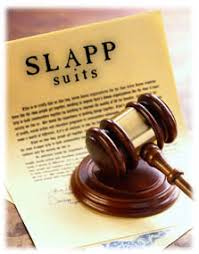 Not to be outdone, today's DJ has an article from Mark Goldowitz and Evan Mascagni at CASP (the California Anti-SLAPP Project) advocating the need for a federal anti-SLAPP statute.
Not to be outdone, today's DJ has an article from Mark Goldowitz and Evan Mascagni at CASP (the California Anti-SLAPP Project) advocating the need for a federal anti-SLAPP statute.
{Update: Make that a trifecta! See below...}
Scott Graham's article in The Recorder, Rethinking Anti-SLAPP, covers the recent Makaeff v. Trump University and Mendoza v. Hamzeh opinions, which special emphasis on how the concurring opinions from Chief Judge Kozinski and Judge Paez urge that California's anti-SLAPP law should not apply in federal court. As the Chief put it, the Ninth Circuit made "a big mistake" when it decided over a decade ago to apply California's law in federal court, and he's pushing for the Circuit to revisit that issue en banc.
Tuesday, April 23, 2013
Kumbaya or Not!
Today's DJ features a cover story -- State High Court Splits, Less on Ideology But on How Much to Rely on Legislative History -- about 4-3 splits in California Supreme Court opinions over the past year. According to the article, Justices Kennard and Baxter use a plain meaning interpretation of statutes, but Justices Werdegar and Liu "tend to place more emphasis on the law's legislative history." The article quotes Professors Gerry Uelman and Sean Martin, as well as Kennard staff attorney John Murphy.
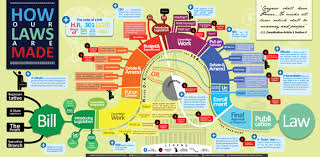

Simplified to:
just can't get away from the pork theme this week...
Monday, April 22, 2013
"PC487" license plate joke...
What is Penal Code section 487? Grand theft, of course.
So the license plate joke answer is.... Grand Theft Auto.
And, for a primer on the famous videogame by that name, read this Ninth Circuit opinion.
Penal Code section 487, subdivision (d)(1), is the precise citation for GTA.
That same subdivision is also amusing in enumerating not just automobiles for grant theft treatment, but also a variety of farm animals! The exact listing is:

Also, I'm no farmhand -- and no drafter of legislation, either -- but why wasn't it enough to simply say "pig," which would presumably cover hogs, sows, boars, gilts, barrows, and shoats for that matter! If it's enough to say "bovine animal" or "caprine animal," wouldn't "porcine animal" have sufficed? And why go on after listing "mule" to then list "jacks" and "jennys" -- male and female mules [see correction below], respectively? Perhaps when this was drafted legislators were paid -- like paperback hacks -- by the word?


So the license plate joke answer is.... Grand Theft Auto.
And, for a primer on the famous videogame by that name, read this Ninth Circuit opinion.
Penal Code section 487, subdivision (d)(1), is the precise citation for GTA.
That same subdivision is also amusing in enumerating not just automobiles for grant theft treatment, but also a variety of farm animals! The exact listing is:
An automobile, horse, mare, gelding, any bovine animal, any caprine animal, mule, jack, jenny, sheep, lamb, hog, sow, boar, gilt, barrow, or pig.One of these things is not like the others....
Also, I'm no farmhand -- and no drafter of legislation, either -- but why wasn't it enough to simply say "pig," which would presumably cover hogs, sows, boars, gilts, barrows, and shoats for that matter! If it's enough to say "bovine animal" or "caprine animal," wouldn't "porcine animal" have sufficed? And why go on after listing "mule" to then list "jacks" and "jennys" -- male and female mules [see correction below], respectively? Perhaps when this was drafted legislators were paid -- like paperback hacks -- by the word?
PC 487(d)(1) v. Animal Farm -- Are all pigs equal?
Mr. Ed(ucation) UPDATE: Reader Charles Hokanson points out that Jacks and jennys are male and female donkeys; whereas mules are hybrids (between horses and donkeys). A valuable correction. But the point remains, why not just use "equine animals" (covering horses, mules, donkeys, and perhaps even eohippises) and be done with it? Oh well, enough horseplay.
Saturday, April 20, 2013
You are cordially Invited...
Here's an invitation you can't refuse: An Invitation to Comment!

The Spring rules proposals are out and circulating now with comments accepted until June 19.
The appellate proposals you care about are SPR13-02 to SPR13-10.
So take a look here and get those comments in...
SPR13-02: Appellate Division Rules & Form (misdemeanor appeals)
SPR13-03: Defaults in Procuring Record
SPR13-04: Civil Case Info Statement
SPR13-05: Decreasing the Number of Copies of Filed Documents
SPR13-06: Felony/Juvy Appeals Transcripts
SPR13-07: Civil Appeals RTs
SPR13-08: Seal Records
SPR13-09: Signatures on Filed Documents
SPR13-10: Writ Proceedings
The Spring rules proposals are out and circulating now with comments accepted until June 19.
The appellate proposals you care about are SPR13-02 to SPR13-10.
So take a look here and get those comments in...
SPR13-02: Appellate Division Rules & Form (misdemeanor appeals)
SPR13-03: Defaults in Procuring Record
SPR13-04: Civil Case Info Statement
SPR13-05: Decreasing the Number of Copies of Filed Documents
SPR13-06: Felony/Juvy Appeals Transcripts
SPR13-07: Civil Appeals RTs
SPR13-08: Seal Records
SPR13-09: Signatures on Filed Documents
SPR13-10: Writ Proceedings
And the answer is.... A Fischer of Mensches!
Drum roll please. The answer to legal license plate riddle number one is...
... a well known appellate specialist who handles criminal appeals.Dennis reports that another famous Southern California appellate luminary once had a license plate that read: WRIT EM.
Friday, April 19, 2013
Want 20% postjudgment interest?
Judgment creditors love California's 10% statutory interest rate (CCP 685.010).
But where can you double that love and find a 20% postjudgment interest rate?
According to yesterday's 2/5 published case, to get such a WONderful rate, start swimming west to the Land of the Morning Calm...
But where can you double that love and find a 20% postjudgment interest rate?
According to yesterday's 2/5 published case, to get such a WONderful rate, start swimming west to the Land of the Morning Calm...
| Gotta love a 20% interest rate! Good incentive to pay up. |
Another legal license plate!
Driving to the office this morning I noticed and snapped the pic below:
Two questions:
First, any idea who this might be?
Second, this person has a good sense of humor! Email me the meta-message embedded in the joke here to claim credit for "getting it."
Hint: Residents of the city of "Los Santos" in the state of "San Andreas" will get it immediately...
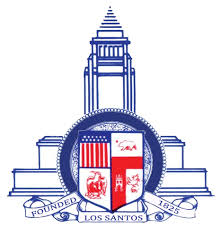
Two questions:
First, any idea who this might be?
Second, this person has a good sense of humor! Email me the meta-message embedded in the joke here to claim credit for "getting it."
Hint: Residents of the city of "Los Santos" in the state of "San Andreas" will get it immediately...
Herb Fox on Tricky Dick's Early Days
Appellate lawyers do a lot of legal research. In the course of that exhaustive (and exhausting) review of case law, interesting tidbits often pop out. When that happens, please share them with SCAN, as Herb Fox has done. Herb writes:
While researching a string of cites in another case, I came across a 1942 opinion from the Second District COA describing a "young attorney" by the name of Richard M. Nixon, who in 1938 accepted a property in satisfaction of a judgment in his client's favor, allegedly without her consent or knowledge. The Court of Appeal said that Nixon "was occasionally employed by the firm of Wingert and Bewley" as their “outside man...” [whatever that means! (Michael Clayton?)] The trial court apparently found no wrongdoing by our soon to be famous Tricky Dick. The case is Schee v. Holt (1942) 56 Cal.App.2d 364.
| Young Mr. Nixon |
Today's DJ appellate articles
The Daily Journal is a reliable source of appellate law articles -- or perhaps its more accurate to say that California's appellate bar is a reliable source of articles that the DJ will publish. Today's edition contains two articles of note: Myron Moskovitz has an article titled Strategize Before Drafting A Statement of Decision and Simon Goodfellow has one titled Your Opponent Appeals an Order to Arbitrate: Can he do that?
And today's Law360 Appellate has an article titled 5 Tips For Keeping An Appeal On The Table. One of the bromidic quintet is "Hone in on Appealable Issues." I'd add a tip: Consult Garner's Modern American Usage to learn that the traditionally correct phrasing is "home in," not "hone in."
| Thanks for the tips, guys! |
And today's Law360 Appellate has an article titled 5 Tips For Keeping An Appeal On The Table. One of the bromidic quintet is "Hone in on Appealable Issues." I'd add a tip: Consult Garner's Modern American Usage to learn that the traditionally correct phrasing is "home in," not "hone in."
Wednesday, April 17, 2013
A garish distortion of the record equals...
Q: So what happens when an opinion from 4/1 says: "[w]e are troubled by Attorney Defendants utter failure to provide a 'summary of significant facts limited to matters in the record'" and "Defendants' appeal garishly distorts the record and has no basis in law or fact..." and "We cannot sit idly by when several members of the bar fail to live up to the standards of the profession"?
A: Appellate sanctions of over over $60K (of which $8,500 goes to the Court of Appeal).
Details about this anti-SLAPP/appellate sanctions extravaganza at Kleveland v. Siegel & Wolensky, LLP.
A: Appellate sanctions of over over $60K (of which $8,500 goes to the Court of Appeal).
Details about this anti-SLAPP/appellate sanctions extravaganza at Kleveland v. Siegel & Wolensky, LLP.
| Things get a bit eerie (in a good way!) for Kleveland. |
| As far as we know, this famous steakhouse has nothing to do with the sanctioned Appellants. |
"Everything you Wanted to Know About Appeals but Were Afraid to Ask"
OCBA's May 2 Appellate Law Section lunch program will feature 4/3's Justice Fybel sharing his views on appellate practice in 4/3 and beyond. Details here.
| Justice Fybel |
| Not Justice Fybel |
Tuesday, April 16, 2013
Who's geekier: Patent lawyers or Appellate lawyers?
This week's Recorder (Week of April 15, 2013, p. 11) has an article about the Patent Office's new Silicon Valley branch, which features patent lawyer Neil Smith holding a California license plate (presumably his) that reads: PATENTS.
Not to be outdone, an intrepid Southern California appellate specialist has been driving his Volvo sporting the personalized plate below for many years now. Do you know who this is? (Send your answers by Friday, May 19 to BShatz@manatt.com.)
| Close enough: This is not Neil Smith's license plate; his reads PATENTS. |
 |
| Do you know who owns this awesome appellate license plate? |
Lurking problems in the complex world of post-trial practice
Today's DJ has an article from Kasey Curtis and Paul Fogel about post-trial practice lessons to be learned from 2/1's opinion in Webb v. Special Electronic Co., Inc. (March 14, 2013) 214 Cal.App.4th 595.
| "Well, isn't that special" |
Monday, April 15, 2013
OSCAR gets a makeover...
The Third Branch News reports:
OSCAR Update Adds Transparency to Clerkship Process
A major redesign of a popular online resource for law clerkships will make the federal law clerk application and review process more orderly, transparent, and fair for all. Version 7 of the Online System for Clerkship Application and Review (OSCAR) was released this month by the Administrative Office of the U.S. Courts.
Read the full story and watch the video.
|  |
Friday, April 12, 2013
Justices Beds on Hypothecation by Bottomry
Another masterpiece of legal scholarship lies here. If you don't know about hypothecation by bottomry this is a must read; and if you do, then it's an even must'er read. MCLE credit awaiting approval from the House of Lords. (Actually, maybe you should deduct MCLE credit from your tally after reading!)
Respondentia (1) a loan where a ship's cargo is the security, on similar terms to bottomry; (2) discoloration of the skin from filing too many briefs with yellow covers.
| Lord Fozziwick and Lord Chenneyworth? |
Thursday, April 11, 2013
Tricky reconsideration appealability analysis
Motions for reconsideration can make for some tricky questions about when the time to appeal starts. Today's publication of last month's decision by 1/2 may help untangle the mess. It holds that material or substantial modification of an order restarts the time to appeal -- whether or not the trial court grants or denies reconsideration.
| Probably not the CATS (Community Awareness Treatment Services) members involved in this case. |
Wednesday, April 10, 2013
For Your (Re)consideration (re attorney fault affidavits)
Does the reconsideration statute (CCP 1008) apply to a renewed section 473 motion (for mandatory relief based on an affidavit of attorney fault)? Back in 2009, the 6th District said "no" in Standard Microsystems.
Today, 2/4 says "yes."

Split (the position)...

You get the idea...
Other pics illustrating aspects of this case:

No Two Bites @ the Apple
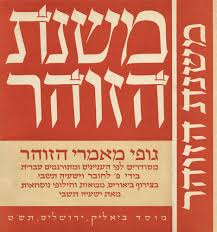
Today, 2/4 says "yes."
Split (the position)...
Split (the city)
You get the idea...
Other pics illustrating aspects of this case:
No Two Bites @ the Apple
You Don't Mess With the Zohar
Will your brief be read?
Today's DJ features an article by Appellate Specialist David Wilson (of Manning & Kass, et al.) providing advice about how to write a compelling brief that will be read. He advises: "Think like a lawyer, write like a human being," "Keep your audience in mind," "Know the rules; and when to break them," and "Use exactly the right word."

Also, yesterday's DJ profiled LASC Judge Michael Raphael, who clerked for a 6th Circuit judge, and went on to spend five years dedicated to appellate work at the US Attorneys' Office in LA, eventually becoming chief of criminal appeals. The article's pullquote: "I've always had what you might call an intellectual interest in the law."
Also, yesterday's DJ profiled LASC Judge Michael Raphael, who clerked for a 6th Circuit judge, and went on to spend five years dedicated to appellate work at the US Attorneys' Office in LA, eventually becoming chief of criminal appeals. The article's pullquote: "I've always had what you might call an intellectual interest in the law."
Tuesday, April 9, 2013
The RT Wars continue...
This time it's an appeal from a preliminary injunction order. Is a reporter's transcript really necessary for such an appeal? According to the majority here, it sure is. (And you already knew this decision is from 2/5, right?)
Defendants argue the trial court abused its discretion in granting the preliminary injunction because it misapplied the law and relied upon inadmissible evidence. But defendants concede they did not provide this court with a reporter’s transcript of the hearing or a suitable substitute. Defendants assert the reporter’s transcript is unnecessary because the trial court’s opinion and the basis for its order are set forth in the written minute order. But a judgment is presumed to be correct and appellant has a duty to provide the reviewing court with an adequate record to demonstrate error. [cites] Without a proper record, we cannot determine whether the trial court abused its discretion in granting the preliminary injunction. In numerous situations, appellate courts have refused to reach the merits of an appellant’s claims because that appellant failed to provide a reporter’s transcript of a pertinent proceeding or a suitable substitute.
| Episode XIII: Revenge of the Missing RT |
And speaking of the missing record material tanking an appeal, here's one today (from 1/1): If you're appealing from a summary judgment, you better include the summary judgment motion (and the complaint) in the record! (Yes, even if you're acting pro per.)
Monday, April 8, 2013
Appellate Lessons from a Brown Eyed Girl
Last month the California Supreme Court issued an opinion (Bourhis v. Lord) on appellate jurisdiction that has several points of interest. (You may already have read about it, perhaps here?)
Here's the story: Appellant Brown Eyed Girl, Inc. filed two notices of appeal while its corporate powers were suspended for failure to pay its taxes. Respondents filed motions in the Court of Appeal (1/2) to dismiss the appeals. Those motions prompted BEG to pay its taxes, allowing it to argue that its corporate revival validated its notices of appeal. The Court of Appeal was ok with that and denied the motions to dismiss.
Interesting issue #1 (PFR): Respondents successfully filed petitions for review from the orders denying the motions to dismiss the appeals. (See CRC 8.500(a)(1).) You don't often see successful PFRs from motions. The Supremes took up the issue of "whether a corporation that files notices of appeal while its corporate powers are suspended may proceed with the appeals after those powers have been revived, even if the revival occurs after the time to appeal has expired."
Interesting issue #2 (Stare Decisis): As cited in the Court of Appeal's order, two Supreme Court cases from the 1970's had held that revival of corporate powers validates an ealier notice of appeal. (But neither case indicated whether the revivals at issue there came before or after the expiration of the jurisdictional time to appeal.) Had the time come to overturn (or distinguish) those cases? Nope: stare decisis wins out this time:
Good arguments can be made for both sides of this issue. From a practitioner's point of view, anything that helps to keep appeals alive and addressed on their merits is welcome. And this may help the State's coffers by encouraging delinquent corporations to pay their taxes.
Interesting issue #4 (lawyer MIA for the oral argument!): At the Lectern covered this point here.
Finally, point #5 -- The Van Morrison pic was a no-brainer... But who knew that Brown Eyed Girls were a K-Pop group? Now you do.
Here's the story: Appellant Brown Eyed Girl, Inc. filed two notices of appeal while its corporate powers were suspended for failure to pay its taxes. Respondents filed motions in the Court of Appeal (1/2) to dismiss the appeals. Those motions prompted BEG to pay its taxes, allowing it to argue that its corporate revival validated its notices of appeal. The Court of Appeal was ok with that and denied the motions to dismiss.
Interesting issue #1 (PFR): Respondents successfully filed petitions for review from the orders denying the motions to dismiss the appeals. (See CRC 8.500(a)(1).) You don't often see successful PFRs from motions. The Supremes took up the issue of "whether a corporation that files notices of appeal while its corporate powers are suspended may proceed with the appeals after those powers have been revived, even if the revival occurs after the time to appeal has expired."
Interesting issue #2 (Stare Decisis): As cited in the Court of Appeal's order, two Supreme Court cases from the 1970's had held that revival of corporate powers validates an ealier notice of appeal. (But neither case indicated whether the revivals at issue there came before or after the expiration of the jurisdictional time to appeal.) Had the time come to overturn (or distinguish) those cases? Nope: stare decisis wins out this time:
The doctrine of stare decisis teaches that a court usually should follow prior judicial precedent even if the current court might have decided the issue differently if it had been the first to consider it. This doctrine is especially forceful when, as here, the issue is one of statutory construction, because the Legislature can always overturn a judicial interpretation of a statute. The doctrine of stare decisis is not absolute, and sometimes it is appropriate to overrule prior precedent, even precedent interpreting a statute. Nevertheless, a court should be reluctant to overrule precedent and should do so only for good reason.Interesting issue #3 (the merits): In a mere ten pages Justice Chin whips out a crisp affirmance and is joined by every other justice, except Justice Kennard. She takes the hard-line view that appellate jurisdiction is wholly dependent on the timely filing of a valid notice of appeal, and an invalid notice of appeal simply cannot be "saved." Justice Kennard goes on to argue that the cases from the 1970's "were wrong then, are wrong now, and should be overruled."
Good arguments can be made for both sides of this issue. From a practitioner's point of view, anything that helps to keep appeals alive and addressed on their merits is welcome. And this may help the State's coffers by encouraging delinquent corporations to pay their taxes.
Interesting issue #4 (lawyer MIA for the oral argument!): At the Lectern covered this point here.
Finally, point #5 -- The Van Morrison pic was a no-brainer... But who knew that Brown Eyed Girls were a K-Pop group? Now you do.
AG's office called out for subpar briefing
This blog often reports on poor appellate lawyering as reflected in court decisions. Today's installment shows that not even the AG's office is immune: see here (footnote 1):
The Attorney General essentially abdicated her role as counsel for a party to these proceedings on this sufficiency of evidence issue. Responding to the insufficiency argument, which extended 27 pages in the appellant's opening brief and included numerous arguments concerning specific evidence, the Attorney General provided a little more than one page summarizing the evidence, without addressing defendant's specific arguments about the evidence. The Attorney General did this after we struck her first brief and directed her to file a new brief. We stated: "The Attorney General is directed to serve and file a respondent's brief, responding in detail to the appellant's opening brief . . . ." Because we cannot reverse unless there is a miscarriage of justice (Cal. Const., art. VI, § 13), we cannot deem the Attorney General's minimal treatment of defendant's arguments a concession of their merit. Nonetheless, the Attorney General's failure to respond appropriately in this case is unacceptable.
Friday, April 5, 2013
Don't call us, we'll call you.
An opinion from the 9th Circuit last month listed no case number, case origin, or case type on the published opinions webpage. Already that's a good sign that something interesting is afoot. And if you're a procedure geek, you will love this one:
IN RE MOTOR FUEL TEMPERATURE SALES PRACTICES LITIGATION
IN RE MOTOR FUEL TEMPERATURE SALES PRACTICES LITIGATION
I very much appreciate Chief Judge Vratil’s willingness to help with our workload, and I hope that she’ll consider doing so in the many other cases where we have a well-documented necessity for judicial help from outside the circuit.
| This Yellow Brick Road does not lead to California. |
Thursday, April 4, 2013
A neat way to win an appeal: Disentitlement!
Here's a neat trick:
Defendants, an individual and a corporation, appealed from a California judgment in favor of plaintiffs, but did not post a bond to stay enforcement of the judgment. Plaintiffs, after registering the judgment in New York where defendants are located, attempted to enforce the registered sister-state judgment there by serving a subpoena seeking financial information from the corporate defendant. Defendants did not comply with the subpoena or with a New York trial court order compelling them to respond to it. As a result, the New York trial court held defendants in contempt. In dismissing defendants' appeal under the disentitlement doctrine, we hold that the doctrine applies to noncompliance with and contempt of New York trial court orders, which noncompliance and contempt directly affect and frustrate the enforcement of a California judgment.
The Met News has an article about the case:
Court of Appeal Clarifies Application of Disentitlement Doctrine
Panel Says Rule Applies to Evasion of Sister-State Court Orders
Crossing the line?
As a former NHL goal judge, 4/3's Justice Bedsworth has a keen eye for seeing when something moving fast crosses the line. In yesterday's decision of AAA Blueprint v. Vasquez, he brings that skill to bear on an appellant:

Check!


Reader Charles Hokanson points out that Respondent takes a blow as well, in footnote 5:
While we agree that appellants’ briefs are dismal specimens of appellate advocacy, we must be careful not to equate poor lawyering with frivolousness.
Check!
Body check!We agree that appellants’ briefs could be used in law school classes on appellate advocacy as examples of how not to do an appellate brief.
Violations of the rules of court and of accepted appellate practice occur on almost every page. For example, appellants repeatedly cite to documents (i.e., defense trial exhibits) that are not in the record before us. [cite] Appellants do not give a comprehensive summary of the evidence presented at trial, as they are obliged to do when they identify insufficient evidence as an issue. [cite] The sole case on which they rely to support their lack of standing argument ... has almost nothing to do with the issue.But not checkmate! Sanctions are narrowly avoided because "However ineptly, appellants raised issues not totally devoid of merit. We therefore deny the motion for sanctions."
Reader Charles Hokanson points out that Respondent takes a blow as well, in footnote 5:
We should also point out that, while appellants cited to documents not in the record, [Respondent] committed the worse sin of misrepresenting what the record said and did so often enough to create a pattern of misrepresentation. [cite]We could properly commend all of the briefs to our hypothetical appellate advocacy class as cautionary examples.
Chief Alex Kozinski to recieve the Gumpert Award
The Center for Civic Mediation's 20th Annual Awards Dinner will be April 18 at The L.A. Hotel Downtown (333 S. Figueroa) and will honor (posthumously) U.S. Ambassador J. Christopher Stevens with the Louis M. Brown Conflict Prevention Award and honor 9th Circuit Chief Judge Alex Kozinski with the Emil Gumpert Judicial Services Award.


| Emil Gumport |
J.R. versus Guru Baba
Yee Haw! It's an old fashion boundary dispute out in Ojai with some colorful characters and some interesting law... Nothing brings back those fond 1L years like an excursion into adverse possession...
Subscribe to:
Posts (Atom)


